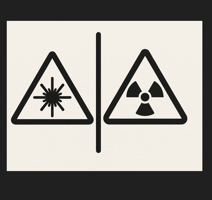Accurate slag analysis is very important in the steel industry because it helps control the...
Buy Cheap, Pay Twice – Cost Comparison of XRF vs. OES in Slag Analysis
When it comes to purchasing new analytical instruments in a steel plant, the lowest purchase price often hides the true operational costs. In slag analysis, the total cost of ownership is not defined by equipment price alone — labor time, maintenance, automation, and sample throughput can have a much larger financial impact over time.
Disclaimer: Every steel plant is unique. Factors such as plant layout, analytical needs of the meltshop, range of analytical methods, internal engineering, purchasing strategy, or direct imports can strongly influence cost structures. The figures below are therefore guidelines only. For individual consultation, please contact us or your local QuantoLux partner.
Typical Instrumentation and Investment Costs in Slag Analysis
Depending on analytical requirements, several XRF and OES options are available. XRF handheld analyzers typically cost between €30,000 and €60,000, while benchtop instruments range from €50,000 to €100,000. Full-scale laboratory XRF systems are priced between €100,000 and €200,000. Sample preparation equipment, which is mandatory for XRF analysis, including crushers, mills, weight-measurement, mixers, and presses, can cost between €20,000 and €100,000. Semi-automated mill and press units are more expensive, ranging from €200,000 to €300,000. Automation and pneumatic tube systems start from around €100,000. The overall cost-range from the most basic to the most sophisticated setup is in the range of 80k€ - 1.X mio. €.
At-line OES slag analyzers typically cost between €180,000 and €250,000, with an additional crusher costing roughly €10,000.
Cost per Analysis – The Real Decision Factor
The purchase price alone rarely reflects the true cost per sample. Analysis time, labor, and workflow design have a significant impact on total operating expenses. In a manual sample preparation plus XRF scenario, the analyzer might cost €120,000, with analysis taking 10 to 15 minutes per sample and labor costs exceeding €10 per analysis at a rate of €49 per hour. Semi- or fully automated XRF systems significantly reduce manual work but involve higher investment and maintenance expenses. Laser OES offers direct analysis on crushed slag with minimal sample preparation, reducing labor costs by up to 90 percent and allowing analysis to be performed as an additional task by control room or furnace operators.
Accurate slag analysis is crucial for process optimization, but selecting the right system requires balancing investment, labor efficiency, and analytical turnaround time.
Example Calculation – 30 Samples/Day, €49/hour

Conclusion: Even at moderate throughput (30 samples/day), clear cost differences emerge. With higher sample volumes, analysis time becomes the dominant cost factor.
Slag analysis Cost Calculator – Make Your Own Comparison
As noted in the disclaimer, every steel plant is unique. To help users perform their own cost calculations, a simple and flexible Excel calculator has been created. Its purpose is to reveal the true costs of slag analysis based on individual parameters. The table is designed to be easy to use and can be extended or customized.
Adjustable input parameters include the number of samples per day, hourly labor rate, instrument cost and lifetime, consumables, and sample preparation and analysis time.
The full Excel file can be requested by emailing alexander.schlemminger@quantolux.de
Summary – RFA vs. OES Cost Perspective
-
Shorter analysis and preparation times can significantly reduce total analysis cost
-
RFA solutions remain ideal for certain applications, particularly where analytical diversity or established lab workflows are required
-
Cost comparisons without evaluating analysis time overlook key operational factors
-
Considering labor effort, maintenance, and depreciation is essential for a realistic cost model
Our tip: Don’t just look at the purchase price — evaluate the total cost of ownership. By including labor, maintenance, and utilization, you gain a clear picture of the real economic impact of your slag analysis solution.




